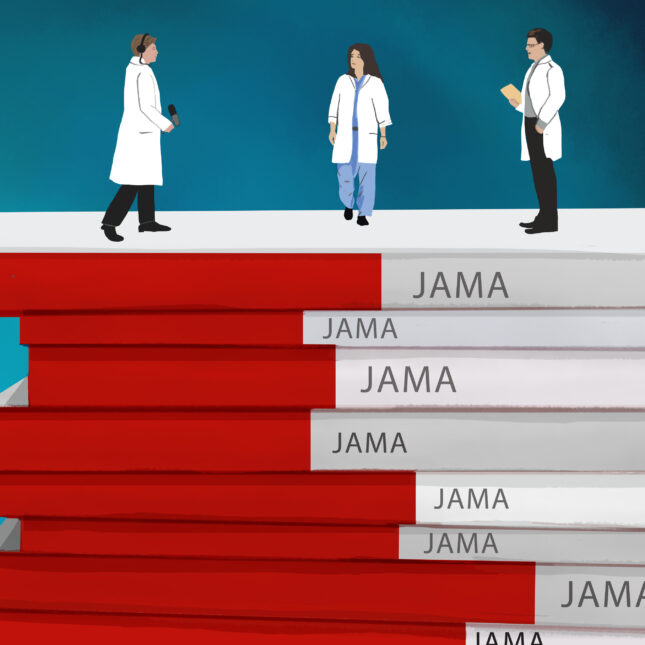
Title: The Life-Saving Impact of Diversity in Medicine: Perspectives from Dr. Pamela Buchanan
Diversity in the medical field transcends mere representation—it’s fundamentally linked to survival. In a recent episode of The Podcast by KevinMD, Dr. Pamela Buchanan, a family medicine physician, shares impactful stories and data-driven insights highlighting how cultural awareness and diversity among healthcare providers enhance patient outcomes.
Reflecting on her journey as an African American woman in a largely white rural setting, Dr. Buchanan illustrates how diversity improves diagnostic precision, fosters patient trust, and plays a crucial role in preserving lives.
A Perspective Grounded in Experience
Dr. Buchanan begins her discussion by referencing the article that inspired this podcast episode, “Why diversity in medicine saves lives.” As one of the scarce Black physicians in her locality, Dr. Buchanan has experienced how cultural understanding can alter treatment directions for patients of color.
One poignant example she offers involves a biracial girl suffering from hair loss and a scalp infection caused by ringworm, resulting in a kerion. Leveraging her cultural insights and medical knowledge, Dr. Buchanan corrected an initial treatment plan from a colleague that would likely have led to failure without systemic antifungal medication. This seemingly minor adjustment was pivotal for the child’s recovery and mental health.
The Importance of Patient-Physician Concordance
Buchanan cites several significant studies, including findings that suggest when Black male patients are treated by Black physicians, they are more inclined to pursue preventive care and feel acknowledged. This alignment minimizes treatment delays and builds trust—vital in communities historically marginalized by healthcare systems.
Such trust is particularly important as African American communities continue dealing with health disparities rooted in historical injustices like the Tuskegee Syphilis Study and persistent systemic inequities. Dr. Buchanan’s role in her community confronts these legacies and encourages patients to seek necessary care.
Bias and the Cost of Ignorance
A critical issue highlighted in the podcast is the influence of implicit bias in emergency medicine. Dr. Buchanan recounts an incident involving a Black woman in a sickle cell crisis who was hastily judged by staff as being drug-seeking. Utilizing her clinical expertise and refusing to dismiss a patient in distress, Buchanan uncovered that the patient was experiencing acute chest syndrome—a severe, potentially fatal complication. Appropriate treatment not only saved the woman’s life but illustrated how racial bias can distort clinical judgment.
Regrettably, such biases are common. Research indicates that Black patients are frequently undertreated for pain, and women’s heart-related symptoms can be misdiagnosed or minimized. Buchanan emphasizes the importance of acknowledging our implicit biases and combating them with evidence-based care and compassion.
Diversity as a Catalyst for Education and Development
Throughout her career, Buchanan has approached instances of bias as opportunities for education. Whether facing prejudice from patients who prefer not to be treated by a Black doctor or addressing doubt from colleagues, she responds with empathy and professionalism—educating through her actions.
Buchanan believes that excelling amid adversity serves both as a survival mechanism and a means to redefine expectations. She often finds herself not just treating patients, but also educating colleagues and staff about cultural complexities and medical procedures—all while balancing her own responsibilities.
Political Resistance and DEI Misunderstandings
In the current landscape, concepts like “diversity,” “equity,” and “inclusion” (DEI) have become contentious, with some asserting that diversity initiatives diminish the quality of professional fields, particularly in healthcare. Buchanan strongly refutes this notion.
“Black female surgeons must pass the same licensing exams,” she states. “No one becomes a doctor without being competent.”
She shares how she has had to strive harder and achieve more than many of her white peers simply to gain equivalent respect. Moreover, data supports her claims: research indicates that diverse teams within healthcare settings foster greater innovation and reduce diagnostic mistakes.
Stronger Medicine Through Diverse Care Teams
The advantages of a diverse healthcare workforce extend beyond cultural awareness. Buchanan emphasizes that when professionals hail from varied backgrounds, they enrich each other’s clinical and cultural competencies, ultimately enhancing patient care.
For example, she has learned to better communicate with Muslim patients during Ramadan and appreciates cultural health practices within Latino and Asian communities that could otherwise be misinterpreted. These shared insights are vital in a nation characterized by its rich diversity.
Conclusion: How Can Healthcare Providers Contribute?
Pamela Buchanan calls on her fellow physicians, trainees, nurses, and administrators to confront their implicit biases and cultivate cultural humility. Recognizing our knowledge gaps—and remaining open to learning from others—is not merely a personal asset but an essential aspect of contemporary medicine.
She encourages clinicians to prioritize listening, minimize judgment, and recognize that an atypical patient presentation doesn’t invalidate their concerns. Even the so-called “frequent fliers” can present genuine medical issues.